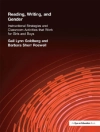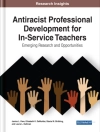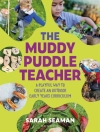Developments within the “knowledge society, ” especially those resulting from technological innovation, have intensified an interest in the relationship between different contexts and multiple sites of learning across what is often termed as formal, non-formal and informal learning environments. The aim of this book is to trace learning and experience across multiple sites and contexts as a means to generate new knowledge about the borders and edges of different practices and the boundary crossings these entail in the learning lives of young people in times of dynamic societal, environmental, economic, and technological change. The empirical research discussed in this book has grown out of a Nordic network of researchers. The research initiatives in the Nordic countries tend to avoid the more spectacular debates over the future of the educational institutions that tend to dominate and obscure discussions on education in the knowledge society, and which look to models of informal learning, whether in the “learning communities” of workplaces and families or in the new socio-technical spaces of the Internet, as a source of alternative educational strategies. Rather, Nordic researchers more modestly ask whether it is possible to envisage new models of teaching and learning which take seriously both the responsibility to social justice and social wellbeing, which, at least rhetorically, underpinned a commitment to mass education of the 20th century, as well as to the radical challenges to traditional educational models offered by the new socio-technical spaces and practices of the 21st century.
สารบัญ
Acknowledgements.- Tracing Learning Experiences within and across Contexts: A Nordic Approach.- Connecting Learning across School and Out-of-School Contexts: A Review of Pedagogical Approaches.- Section One: Practices and Experiences of Meaning-Making.- Deciphering the Anatomy of Scientific Argumentation: The Emergence of Science Literacy.- The Performative Relation between Storyteller, Story, and Children.- The Dangers of Having Fun – Doing Production Work in School: Tensions in Teachers’ Repertoires on Media Education.- Section Two: Boundaries and Bridges of Learning.- The Meaning of Context: Upper Secondary Students’ Meaning-Making and Engagement with Analogue and Digital Artefacts in the Museum and at School.- Primary Schools Crossing Boundaries: A Study on Extended Learning Environments in Two Finnish Village School Contexts.- Exploring Funds of Knowledge During Educational Transitions: Learning Identities, Positionings and Future Trajectories.- Section Three: Agency and Engagement Using Digital Tools.- Learning as a Hybrid: Educational Engagement in the Digital Age.- The Carbon Footprint as a Mediating Tool in Students’ Online Reasoning about Climate Change.- Interacting with the World: Learners Developing Identity and Agency through Boundary Crossing in Mobile Learning.- Pedagogy of Connection: Teachers’ Experiences of Promoting Students’ Digital Literacy.- Commentary.- Can Studying Learning across Contexts Change Educational Research or Will It Lead to the Pedagocization of Everyday Life?












